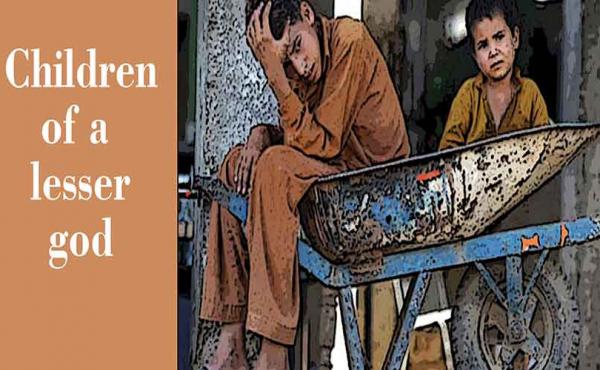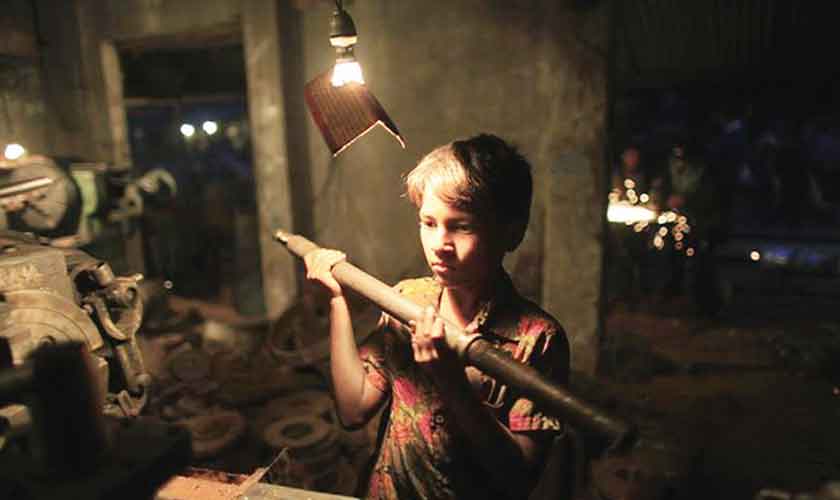By Iftikhar Mubarik
Published in The News on June 11, 2023
Child labour refers to work or activity performed by children that deprives them of their childhood, interferes with their ability to attend school and is harmful to their physical and mental development. This can include work that is hazardous, exploitative or violates their basic human rights.
Child labour is a complex issue. It is often driven by a variety of social, economic and cultural factors. These factors can include poverty, lack of access to education, cultural beliefs about the role of children in society and inadequate legal protections. Additionally, child labour can be difficult to identify and address because it often takes place in informal or unregulated sectors, such as domestic work or agriculture.
Child labour can have a range of negative impacts on children’s health, education and future prospects, making it a critical issue for global development and human rights.
Meaningful developments
After 1996, the government of the Punjab took a strategic step to conduct a child labour survey in 2019-20. Its findings were disseminated in 2022. The survey provides unique information about the living conditions of children and adolescents in the province as well as their daily activities including schooling, working, household chores and leisure. The survey is representative of 35,818,724 children and adolescents aged 5–17 in the province.
The Punjab Labour Policy 2018 reiterated the government’s commitment to deal with the issue of economic exploitation of children through a holistic and multidimensional approach. The Labour Department recently started a pilot project in Muzaffargarh to disengage children involved in child labour and to facilitate their enrollment in mainstream schools.
It is important to address the root causes of child labour, such as poverty and lack of access to education, by implementing policies and programmes that promote economic growth, reduce inequality and improve access to education and training for all children.
The needs
To prevent child labour in the Punjab, it is important to continue to strengthen legal protections for children and to ensure that these protections are effectively enforced. This can include increasing resources for labour inspections, improving coordination between government agencies and working with employers and communities to raise awareness about the harm of child labour. Additionally, it is important to address the root causes of child labour, such as poverty and lack of access to education, by implementing policies and programmes that promote economic growth, reduce inequality and improve access to education and training for all children. The provincial committee on child labour in accordance with Section 4 of the Punjab Restriction on Employment of Children Act, 2016 needs to be revitalised by engaging the stakeholders on the issues. Finally, it is important to engage with civil society organisations and other stakeholders to ensure that the voices and experiences of children are heard and that their rights are protected. Relevant government departments should engage civil society organisations in interventions and projects where grassroots mobilisation is needed. Civil society organisations and groups have strong representation at the grassroots level. This can be useful in achieving the desired results.
More than labour
Child labour in domestic work is particularly harmful because it often takes place on private premises, making it difficult to identify and address. The children work behind closed doors. Children who work in domestic service are often isolated, vulnerable to abuse and exploitation and may be deprived of their basic rights to education, health and safety. There are 38 hazardous occupations defined in the Punjab Restriction on Employment of Children Act 2016, where the minimum age for admission in employment is 18 years. Domestic work is not on this list. However, in many cases children have suffered the worst forms of cruelty as domestic workers.
In 2019, the Punjab provincial assembly enacted The Punjab Domestic Workers Act to regulate domestic workers’ terms of employment and working conditions of service; and to provide them social protection and ensure their welfare. The law has a provision under Section 3 that states: “No child under the age of 15 years shall be allowed to work in a household in any capacity”. In case of contravention of any provision of the said law (including Section 3) a complaint needs to be lodged at Dispute Resolution Committee (DRC) in accordance with Section 25 of the law. Such a committee needs to be notified at the lowest tier of the local government, such as union council. Since the structure of the local government in the Punjab has yet to take shape, these committee have not been notified in the province. Another point of consideration is that employing a child to perform household chores is not a ‘dispute’ instead it is a clear violation of children’s rights as well as the law of the land.
In the Punjab, when child domestic workers suffer cruel treatment by employers, the Child Protection and Welfare Bureau (CPWB) can rescue them. It can seek the registration of an FIR against the perpetrators; keep the child in its custody through court orders; provide temporary residential facilities (usually children working in big cities are brought from small cities and towns); offer them legal and psychological services through referral arrangements with civil society organisations.
The CPWB can only act when a child domestic worker becomes a victim of violence and abuse. Instances where a child is working as a domestic worker generally do not fall in the jurisdiction of the CPWB. There is an immediate need for legislative reforms to bring the child domestic labour under the purview of the Destitute and Neglected Children Act to effectively outlaw child labour in domestic work.
To address this issue on a permanent basis, it is important to raise awareness about the risks and harms of child labour in domestic work, to strengthen legal protections for children and to work with employers and families to create safe and supportive working environments for domestic workers. Additionally, it is important to ensure that children who have been subjected to domestic labour have access to health care, counselling and other support to help them recover from the harms they may have experienced.







